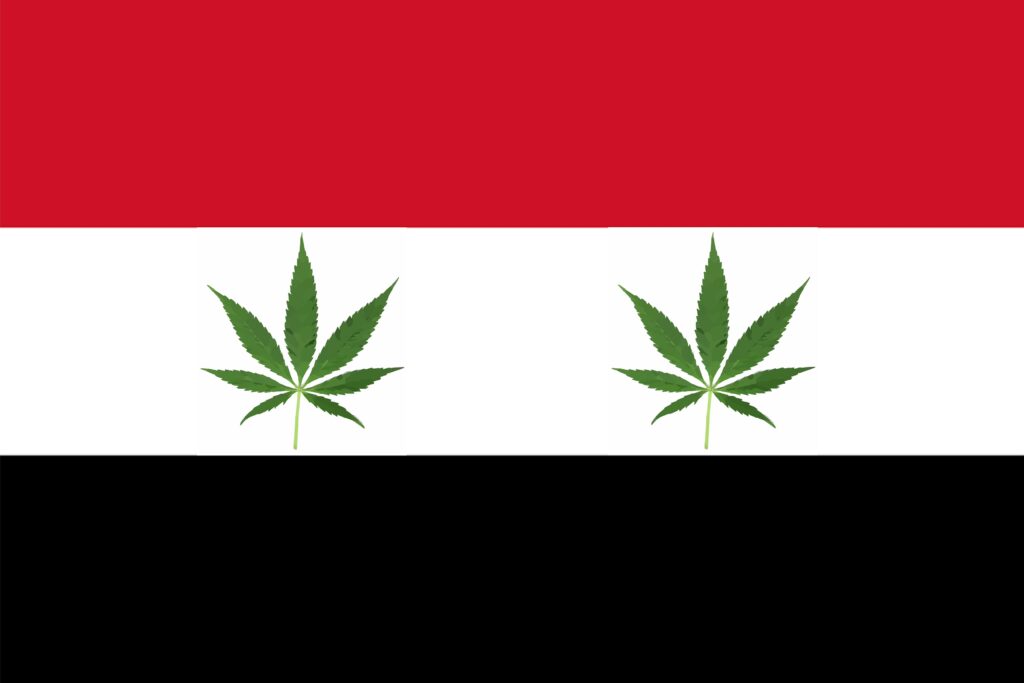On December 19. the Syrian National Committee for Drugs, an office under the Syrian Ministry of Interior, held a meeting to discuss measures to combat drug trafficking. Interior Minister Mohammed Khaled Rahmoun acknowledged that Syria had become a transit point for the drug trade.
Damascus has long denied responsibility for making and exporting narcotics, and Rahmoun reiterated the explanation that Syria’s “geographical location” was to blame.
“Syria plays an important role in supporting the International Community’s efforts in combating crime in general, especially fighting drugs trade,” he claimed in a statement.
That is misleading. In fact, journalistic investigations have produced strong evidence that war-torn Syria has become a narco-state, with Damascus itself addicted to the profits from trafficking.
Most recently, The New York Times on December 5 published an investigation based on law enforcement sources in 10 countries and interviews with Syrian and regional drug experts and United States officials. The takeaway: Syria’s drug trade has become a multibillion-dollar operation with alleged ties to the military and relatives of President Bashar al-Assad.
The newspaper wrote:
“The biggest obstacle in combating the trade, officials said, is that it has the backing of a state that has little reason to help shut it down.”
“The idea of going to the Syrian government to ask about cooperation is just absurd,” said Joel Rayburn, the U.S. special envoy for Syria during the Trump administration. “It is literally the Syrian government that is exporting the drugs. It is not like they are looking the other way while drug cartels do their thing. They are the drug cartel.”
The most traded illicit drug is the captagon pill, an amphetamine. Captagon was first manufactured in the 1960s to treat narcolepsy and fatigue. Soldiers took it to instill bravado. But captagon was banned as a prescription drug in the 1980s as too addictive.
Illegal manufacturing and use of the pill continued, and captagon gained popularity in Europe and the Mideast. New variants are more addictive and cause irreversible brain damage.
The Times report alleged that captagon manufacturing in Syria is mainly overseen by the Fourth Armored Division of the Syrian Army under the command of Bashar al-Assad’s brother, Maher al-Assad. Other players include Syrian businessmen and Lebanon’s Iran-backed Hezbollah party.
Some al-Assad regime associates started investing in captagon as the Syrian civil war dragged on and international sanctions took hold. They became a state-linked cartel of military officers, militia leaders, warlords and al-Assad associates, the Times said, with manufacturing facilities declared as closed military zones.
Large drug shipments from Syria to Greece, Italy and Germany were seized in Jordan, Lebanon and Turkey. Saudi Arabia, however, is the largest Mideast market for the pill.
Jordan is on the front line of policing trafficking on the Syrian border. In October, Jordanian security reported intercepting a drone carrying captagon from Syria.
The biggest busts of drugs from Syria took place in Greece in 2018 and Italy in 2020. The Organized Crime and Corruption Reporting Project (OCCRP), a group of investigative journalists, reported on the former bust.
In the Greek case, a cargo ship, Noka, left the Syrian port of Latakia, which was under the al-Assad government’s control, carrying $100 million in drugs stashed under coffee, spices and sawdust.
OCCRP investigations into the shipment showed that the owner was Taher Al-Kayali, a smuggler who had been convicted by Italian authorities and was allegedly connected to Mudar al-Assad, the president’s cousin.
OCCRP said drug smuggling from Syrian ports might be bringing in $16 billion a year, based on data from busts in 2019 and 2020 in Greece, Italy, the United Arab Emirates, Saudi Arabia and Romania.
In July 2020, Italy seized 84 million captagon pills hidden in three cargo ships from Syria. The haul was worth $1.1 billion and was the largest bust of its kind, according to Italian authorities.
The Italian coast guard initially connected the shipment to the Islamic State terrorist group. But a report by the Center for Operational Analysis and Research(COAR), a political risk consultancy, said it originated in territory held by the Syrian government.
“As the Syrian state has re-consolidated control over much of the country since 2018, narcotics trafficking in Syria has become more expansive and widespread. In parallel, the decimation of conventional economic activities has increased the relative attractiveness of industrial-scale drug profiteering, which has been largely captured and controlled by narco-entrepreneurs linked to the regime of Syrian President Bashar al-Assad and the regime’s foreign allies,” COAR said in a summary of the report.
Other investigations into the shipment uncovered links to the Syrian government and Hezbollah.
Most of the cargo ships involved were registered under shell companies whose addresses and company registration records could not be found.
Captagon exports from Syria reached an estimated $3.5 billion in 2020, COAR said.
In a step to curb Syria’s illicit drug trade, legislation proposed by two U.S. congressmen, French Hill, an Arkansas Republican, and Brendan Boyle, a Pennsylvania Democrat, would require the U.S. Treasury Department and drug and law enforcement agencies to develop a joint strategy to combat narcotics production and trafficking linked to the Syrian regime.
.
By Nisan Ahmado, December 22, 2021, published on Polygraph.info






